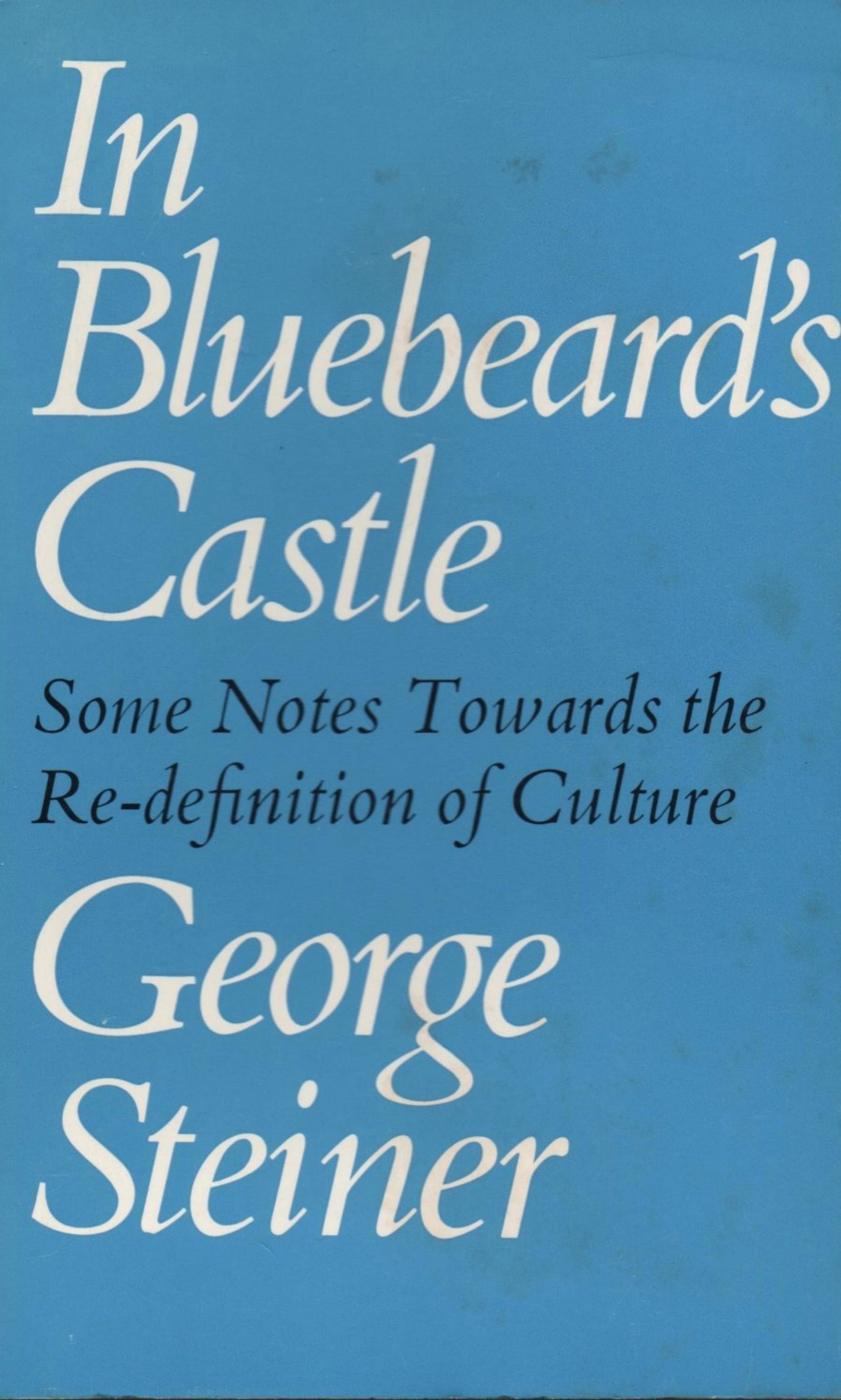In Bluebeard's Castle by George Steiner

Author:George Steiner
Language: eng
Format: mobi, azw3, epub, pdf
Published: 2014-10-13T20:49:12+00:00
74
In B/uebeard' s Castle
university reform, revisions of the school syllabus, expansion of the educational base, adult instruction, the dissemination of excellence through low-cost books and periodicals. These expectations, Lockeian, Jeffersonian if you will, had grown diffuse and self-evident, or self-evident because diffuse (universality entailing vagueness ) . But their central tenet was clear : that there was a natural progression from the cultivation of feeling and intellect in the individual to rational, beneficent behavior in and by the relevant society. The secular dogma of moral and political progress through education was precisely that : a transfer into the categories of schooling and public enlightenment-the lyceum, the public library, the workingmen's college--a£ those dynamics of illumination, of human growth towards ethical perfection that had once been theological and transcendentally elective. Thus the Jacobin slogan that the schoolroom was the temple and moral forum of a free people marks the secularization of a utopian, ultimately religious contract between the actuality and the potential of man.
Human folly and cruelty were directly expressive of ignorance, of that injustice whereby the great inheritance of philosophic, artistic, scientific achievements had been transmitted only to a privileged caste. For both Voltaire and Matthew Arnold-and between them they may be said to date and define the generations of cultural promise-there is an obvious congruence between the cultivation of the individual mind through formal knowledge and a meli-
In a Post-Culture
75
oration in the commanding qualities of life. Though they argued in different idioms and brought different elements to their syllogism, Voltaire and Arnold regarded as established the crucial lemma that the humanities humanize. The root of the "humane' ' is explicit in both terms, and etymology knits them close. All this is familiar ground.
But the proposition needs to be refined. Although concepts of "nurture," of "culture," and of social melioration or perfectibility were intimately meshed and, often, interchangeable, the precise fabric of the relations between them, of the instrumentalities that led from one to the other, continued to be examined. We do find a good deal of boisterous confidence in the immediate correlation of better schooling with an improved society-particularly in American progressive doctrines and Victorian socialism.
But we find also, at a higher plane of debate, a continual awareness of the complexity of the equation. The EJSays on a Liberal Education, edited by F. W. Farrar in 1 867, two years before Arnold's Culture and Anarchy and three years before the Education Act, are a representative example of how the general axiom of improvement through humanism was revalued, as it were, from within. What concerned Farrar, Henry Sidgwick, and their colleagues was, precisely, the limitations of the classical canon. They were engaged in reexamining the orthodox notion of a classical literacy, and they were testing its appropriateness to the needs of an increasingly technological and socially diversified community.
76
In Blue beard's Castle
In the most incisive of these essays Sidgwick argues for the extension of the concept of necessary culture to include modern letters and some competence in the sciences. Greek and
Download
In Bluebeard's Castle by George Steiner.azw3
In Bluebeard's Castle by George Steiner.epub
In Bluebeard's Castle by George Steiner.pdf
This site does not store any files on its server. We only index and link to content provided by other sites. Please contact the content providers to delete copyright contents if any and email us, we'll remove relevant links or contents immediately.
| Books & Reading | Comparative Literature |
| Criticism & Theory | Genres & Styles |
| Movements & Periods | Reference |
| Regional & Cultural | Women Authors |
4 3 2 1: A Novel by Paul Auster(12391)
The handmaid's tale by Margaret Atwood(7763)
Giovanni's Room by James Baldwin(7346)
Asking the Right Questions: A Guide to Critical Thinking by M. Neil Browne & Stuart M. Keeley(5774)
Big Magic: Creative Living Beyond Fear by Elizabeth Gilbert(5771)
Ego Is the Enemy by Ryan Holiday(5445)
The Body: A Guide for Occupants by Bill Bryson(5096)
On Writing A Memoir of the Craft by Stephen King(4942)
Ken Follett - World without end by Ken Follett(4731)
Adulting by Kelly Williams Brown(4574)
Bluets by Maggie Nelson(4555)
Eat That Frog! by Brian Tracy(4536)
Guilty Pleasures by Laurell K Hamilton(4448)
The Poetry of Pablo Neruda by Pablo Neruda(4106)
Alive: The Story of the Andes Survivors by Piers Paul Read(4031)
White Noise - A Novel by Don DeLillo(4009)
Fingerprints of the Gods by Graham Hancock(4004)
The Book of Joy by Dalai Lama(3986)
The Bookshop by Penelope Fitzgerald(3852)
